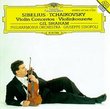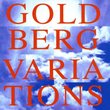| All Artists: Beethoven, Pletnev Title: Piano Sonatas 14, 21 & 23 Members Wishing: 0 Total Copies: 0 Label: EMI Classics Imports Release Date: 5/21/1996 Album Type: Import Genre: Classical Styles: Chamber Music, Forms & Genres, Sonatas, Historical Periods, Baroque (c.1600-1750), Classical (c.1770-1830), Romantic (c.1820-1910) Number of Discs: 1 SwapaCD Credits: 1 UPC: 724354513121 |
Search - Beethoven, Pletnev :: Piano Sonatas 14, 21 & 23
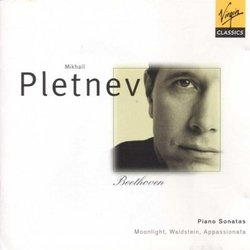 | Beethoven, Pletnev Piano Sonatas 14, 21 & 23 Genre: Classical
|
Larger Image |
CD DetailsSimilar CDs
Similarly Requested CDs
|
CD Reviews* * * 1/2 Fascinating but not *quite* persuasive John Grabowski | USA | 03/15/2006 (4 out of 5 stars) "This is an fasciating disc, one that grows more so with each listening. The overall the reaction is positive, but there are some reservations, as there is for me with all of this pianist's Beethoven (especially recently). He takes liberties, he plays Beethoven with the eye (ear?) or a Romantic, and sometimes I don't think his ideas stand up, or he takes the music not where it wants to go but where he wishes it would have gone, turning Beethoven into a late 19th century mystic a little bit. *But* he is always interesting, even when I find, as I do, the exposition to the Appassionata to be a bit much, a bit distended, and the development missing some of the fire and build I think are needed. The passage that leads to the climax of the development is to me "undercooked," but in the climax itself there's some interesting pedal work. pletnev's usage of color is fascinating in a way I'll come back to later. The third movement, more staccato and circular in construction, comes off far better. Here Pletnev's etched-in-glass technique and suberbly *clean* chords are to the music's advantage.
The Moonlight suffers some of the same problems. The first movement is like staring into a still pond. That's the good news. The bad news is the slow mysterious build to the movement's climax is here slow but not mysterious. Again it's the line, or lack of it. Where the notes should get longer and the melodic shape more connected, Pletnev just plays louder. It's not *bad* or *wrong* but I kept feeling he hadn't coaxed everything out of this music. Again, though, the finale of this work is more circular, more fleet-fingered, and here he raises the hairs on the back of my neck. The stand out on this disc is the Waldstein. This is one of the best Waldstein's I've heard in years. Here it's the first movement that's staccato and filled with fleet energies, and Pletnev leaves my jaw hanging open with a dare-devil combination of brilliant colors and perfect fingerwork. Listen to the left hand in the passage just leading to the recap. Rarely do you hear it with that much shape and clarity. A great moment. The slow movement lacks the mystery of others (Arrau, Schnabel) and is a little disappointing. The coda was thrilling and for once brought the work to a huge enough climax. Downright thrilling. Now, to that "color" Pletnev uses. That's what makes this album most fascinating to me. In my opinion few colorists are successful Beethoven pianists. He is one of them. Or at least he is very interesting. There are passages throughout this disc where I hear colors I've never heard before, where he very creatively uses the pedals, where he draws elements out of the music I didn't know existed. His chording is rich and clear and beautiful. You won't get any new insights into structure with his approach, but after you've heard all the traditional approaches--all the Serkins and Schnabels and Brendels--it's interesting to hear this way of doing it. For Pletnev plays Beethoven like no one else, and agree or disagree--and I did both during this CD--it makes for *fascinating* listening. He's got his original voice, he's got something to say, and I'd rather hear him than all the mainstream conservatory clones out there. The sound is clear and bright and up-front. With some reservations, this recording is indeed recommended, though maybe not as your very first encounter with any of these works." |

 Track Listings (9) - Disc #1
Track Listings (9) - Disc #1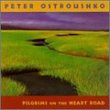


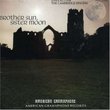

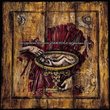


![Across The Universe [Deluxe Edition]](https://nationalbookswap.com/cd//m/51/1251/1241251.jpg)

